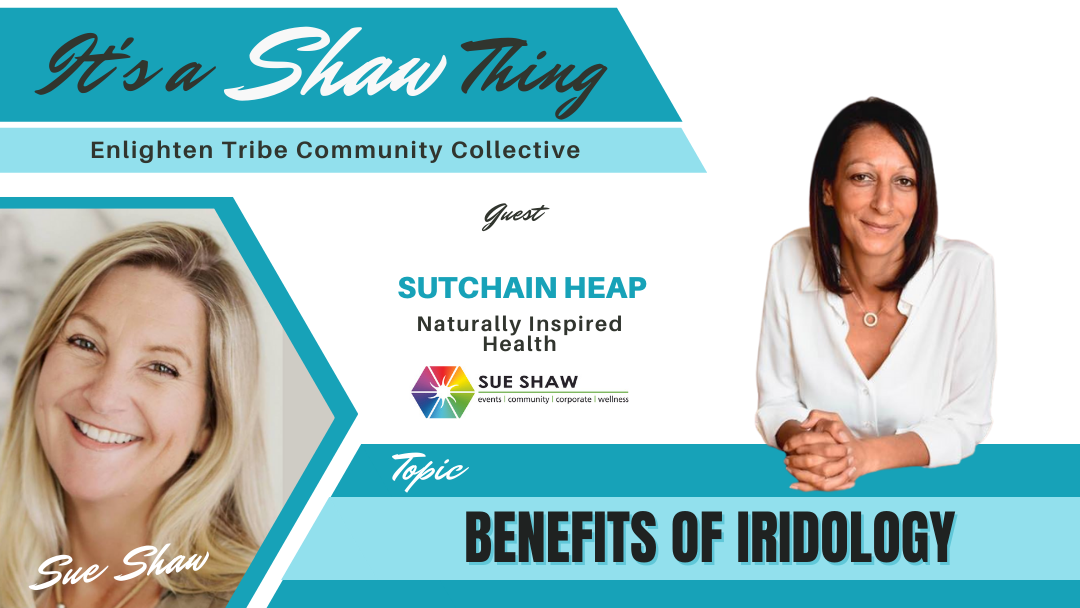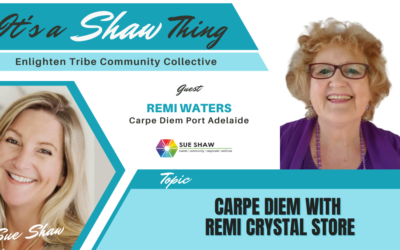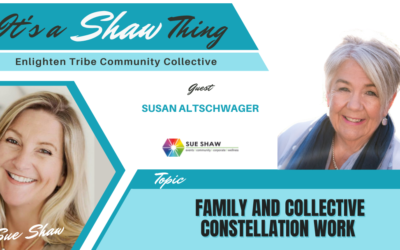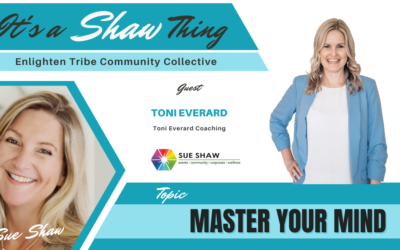Interview with Sutchain Heap, owner and founder of Naturally Inspired Health
Having worked in mainstream medicine as a nurse for over 30 years, it was an industry I trusted. I found myself with chronic back pain and digestive issues and no matter how much I followed the recommendations and took the supplements and did the physiotherapy, I just wasn’t getting where I needed to be. I started looking at alternative ways to improve my own health because at that point I honestly believed that I had the potential to be in a wheelchair by the time I was 50. I also had two young babies and felt like it wasn’t the life I’d signed up for so I needed to look for alternatives.
What really made the difference to me and what led me to where I am right here was when I got a phone call from a really close friend to say that she had just been diagnosed with breast cancer. By the time they found the cancer, it was in her pelvis, spine, and liver.
We were the same age, we had children in the same class at school and this really hit home with me that no matter how much knowledge I had in the industry I was in, this wasn’t going to help my friend move through her journey and continue to be there for her family and her young children.
It was that day that I walked away and decided that something needed to change.
What changed was the understanding of how the body actually works and some of those practices that we can bring into play, to actually bring the body back into balance to support it to do what it is designed to do naturally, which is to heal itself.
That was a really big step out of my comfort zone, but one that took me on a journey to really live my passion.
The old saying “what you eat is what you are” is not actually the totality of it. It’s what your body can actually digest, which is what you are.
When I stepped away from mainstream medicine I studied naturopathy and knew natural therapy was the way I wanted to go. I got into about 3 years of my studies and realised that this wasn’t actually the answer, either.
What I found with naturopathy was it moved from its traditional realm of natural therapies into more of a mainstream perspective and I just felt there was still something missing in the industry as well.
I followed from there into more traditional healing and detox principles and then from there, the functional nutrition came in. Functional nutrition is a really interesting modality as it isn’t about just following nutrition advice, it’s not about diet, it’s actually about understanding how the body functions from a cellular level and understanding that there is a journey that takes somebody to where they are today.
Going right back from finding information in birth stories and early nutrition, to experiences as a young child and a teenager, things like sports accidents, football, netball, minor traumas that we quite often forget about, can actually have a really big impact into signs, symptoms and diagnosis that we have in later years.
Functional nutrition follows more of the principle, if we can backtrack and really do some research into experiences of life, we can then use nutrition and lifestyle to bring the body back into balance.
When you can find and pinpoint almost that root cause and what the trigger was that initiated that journey. More often than not, it’s not just one thing, we really are a multitude of experiences that are all melded together that bring us to where we are now.
We definitely take the holistic approach here and it’s about not being narrow minded. How many times have you been to the doctors and been completely dismissed? I have to give doctors their credit, they are incredibly well trained in one aspect of medicine and I think that’s what we need to remember, that they are only trained in one aspect and if you can find a GP who is actually trained in not just mainstream medicine, but also in the functional and integrative medicine.
That way you’ll get a bigger picture and the person you work with who has covered more ground, is going to match your needs a lot better. It’s about being open and going to where your client is, where your patient is, and meeting them where they are, on what their perspectives of health should be and guiding them around that step so that they can help and achieve the goals that they’re looking for.
What is Iridology?
It’s an art and a science. It’s about interpreting the colour and the fibre structure of the eye so when you look at the eye and examine it, each fibre within the iris is connected by the nerve to every cell organ within the body. If there is a cell or an organ within the body that is out of balance in any way, then that nerve communication travels up to the eye, and it reflects in there.
By looking at the eyes, we can have a look at what’s going on, not just currently, but also what’s going on genetically. So the iris, which is the coloured part of the eye, tends to have a story or constitution. This is made up of three generations past including your parents, grandparents and great grandparents and you can find a lot about how grandma and grandpa lived because what will happen is they will imprint a story in a message in your eye, that usually indicates that there is a potential for maybe a weakness within a particular organ.
With this information, we can choose the lifestyle that we want to live in order to help support that nurture point. When we look at the sclera, which is the whites of the eyes, this is a reflection of where inflammation is within the body because it’s taking information from the cells and the lymphatic fluid and allows us to know currently what’s going on with you right now.
We can’t blame the generations and our ancestors, but that information helps us to see how you’re living your life on a daily basis and the impact it’s having. With this information, we can actually tailor some recommendations for how it would be more advisable to live your lifestyle and nutrition choices.
Does illness make your irises change?
It’s not so much that illness will make the eye change, but if there is an imbalance within the body, you will see a change within the iris or you’ll see more of an immediate change within the sclera that is in the whites of the eyes and you will find that over time that imprint will come within the iris as well.
There are some quite standard markings that we can see. For example, when there are really strong red lines in the whites of the eyes, depending where they’re positioned, we use them like a map that will tell us which particular organs they are associated with, if it’s an imbalance within the thyroid, maybe it’s a hormonal imbalance within the thyroid, there’ll be a very clear mark in that particular zone that will indicate and points into that direction and then we can do some further investigation. Instead of trying to guess what signs and symptoms are that you’re experiencing, you can just look within the eyes and pinpoint the organ, then we can go back to that functional nutrition approach, which is to do the questioning.
Let’s have a look at what went on through life? Was there a trauma? Was there an emotional element? Were there nutritional lifestyle choices that are leading to the imbalance within the organ?
The starting point of any health journey has got to be about understanding what’s actually going on and that’s what the health assessment does. As we’ve talked about already, we know when looking at that functional nutrition approach, it’s the counseling, it’s about extracting the information.
We’re using iridology so we can pinpoint what areas within the body are out of balance and with that information, I can use that to personalise a program. We’re all unique. We’ve all traveled different stories so when you’re working with someone, it’s not about following a stand-alone program where everyone follows the same steps, but designing a program using your individuality and what works with you.
A coaching program would normally be a 12 week program, it follows three stages, the first stage is the most important, it’s the one that cannot be missed. This is the one that I found when I was working as a nurse, and especially in chronic disease management, this is what was missed. We look at those key foundations to what health is; hydration, nutrition, movement, sleep, awareness of your environment, and that daily practice to build resilience to everyday stressors.
The first part of the program looks at what your nutritional needs are, because your nutritional needs are likely to be a lot different than what somebody else’s are. When we use biochemical analysis, which is a urine and a saliva sample, which can be done very easily just in the clinic, that can really highlight what nutrients you’re lacking and where you need to be building more of a tailored program.
That’s where a lot of the individualised nutrition advice comes from. From there, I’m also a Detox and Fasting Specialist so detoxing, cleansing and fasting are an incredibly powerful way to bring the body back to balance and to work incredibly quickly. In order to do that safely, if you’ve ever tried to fast by yourself and you’ve had detox symptoms, it’s likely because you missed the first stage.
We miss the hydration, the nutrition, the movement, the sleep, the awareness, the daily practice. Once we master those and we move to the detox it usually is a very enlightening experience that will actually shift your healing journey so far forward, that by the time you’ve got to six to eight weeks on the program, you’re usually struggling to remember how bad you felt when you started the program.
The beauty of doing the detox as part of the one on one coaching program, whilst we’d all like to go away on a retreat somewhere, is when you get back home and try to incorporate these new principles in as a lifestyle for something that you’re going to continue doing ongoing? It’s nice to be able to do the cleansing, the fasting, and make those lifestyle changes in the real environment where you live because you need to know how you’re going to go at work and keep hydrated. Being an emergency surgical nurse, I know only too well what it’s like going into a shift, scrubbing up for an operation and being stuck there for eight hours. I certainly couldn’t have a drink because then I’d need to wee and you can’t go for a wee during the middle of an operation! Being able to find a way whilst you’re working with a coach to help you solve all these things. We support you in these real life situations so that you can master those skills and this new lifestyle ongoing.
The one thing to remember with iridology is that it’s an assessment tool. We do not use it to diagnose illness. Your medical practitioner is the only one legally that’s allowed to diagnose so I would never be able to diagnose fibromyalgia or ovary disease, for example, but I can highlight whether there is an imbalance perhaps in the ovaries and then when we bring in that functional nutrition approach, where we’re asking the right questions and looking through lifestyle, we can identify your symptoms through your eyes that are indicating that the ovaries are out of balance, and we can actually come up with a plan to bring them into balance.
What we need to know is that we need to put nutrients into the body so it can heal the imbalance that’s happening with the ovaries.
My journey with digestive issues and chronic pain in my back took me to making those changes for better health and reducing the inflammation. A few years ago, when I was diagnosed with an autoimmune condition, I was very fortunate that I never took that autoimmune to that severe debilitating stage which quite often people with fibromyalgia and lupus actually are. I’m a testament to know that if you do make those lifestyle changes that are identified within the iridology, and in your functional nutrition assessment, that you can reverse the inflammation that could be leading to diagnosed conditions.
I work with women and men well into retirement age and I don’t have an age limit with the people that I work with but I’ve worked with people in their late 70s, who have got grandchildren and want to be flexible, they want to be able to go and play so we can get rid of the inflammation. One of my clients from a couple of years ago was a retired lady with grandchildren who didn’t want the rheumatoid arthritis spoiling her plans and lifestyle and we worked through to the point where she was able to come off all rheumatoid arthritis medication and was pain free and flexible, so she could enjoy those later years with her grandchildren.
Does iridology help with mental illness?
Again, it’s about identifying areas that are out of balance. Now, more often than not, if you’re going to a doctor with mental illness or issues in that area, there are only going to look at that one area whereas Iridology might identify other organs and systems that you’ve not even thought about, maybe the liver is out of balance, maybe the digestive system is out of balance, and those are the things that we can highlight as being the actual root cause to why mental health issues are happening.
So iridology really helps in identifying those triggers, and those root causes for the symptoms that you’re facing. At the end of the day, iridology is just a really good tool for assessing, it’s the recommendations that follow on from this, the nutrition and the lifestyle recommendations that will actually help them with bringing some balance in and overcoming those mental health issues.
Contact Sutchain
37 Vine Street, McLaren Vale, South Australia
Ph: 0414 377 631
Email: sutchain@naturallyinspiredhealth.com.au
Facebook: Naturally Inspired Health
www.naturallyinspiredhealth.com.au
https://sueshaw.com.au/listing/naturally-inspired-health/#post_content





